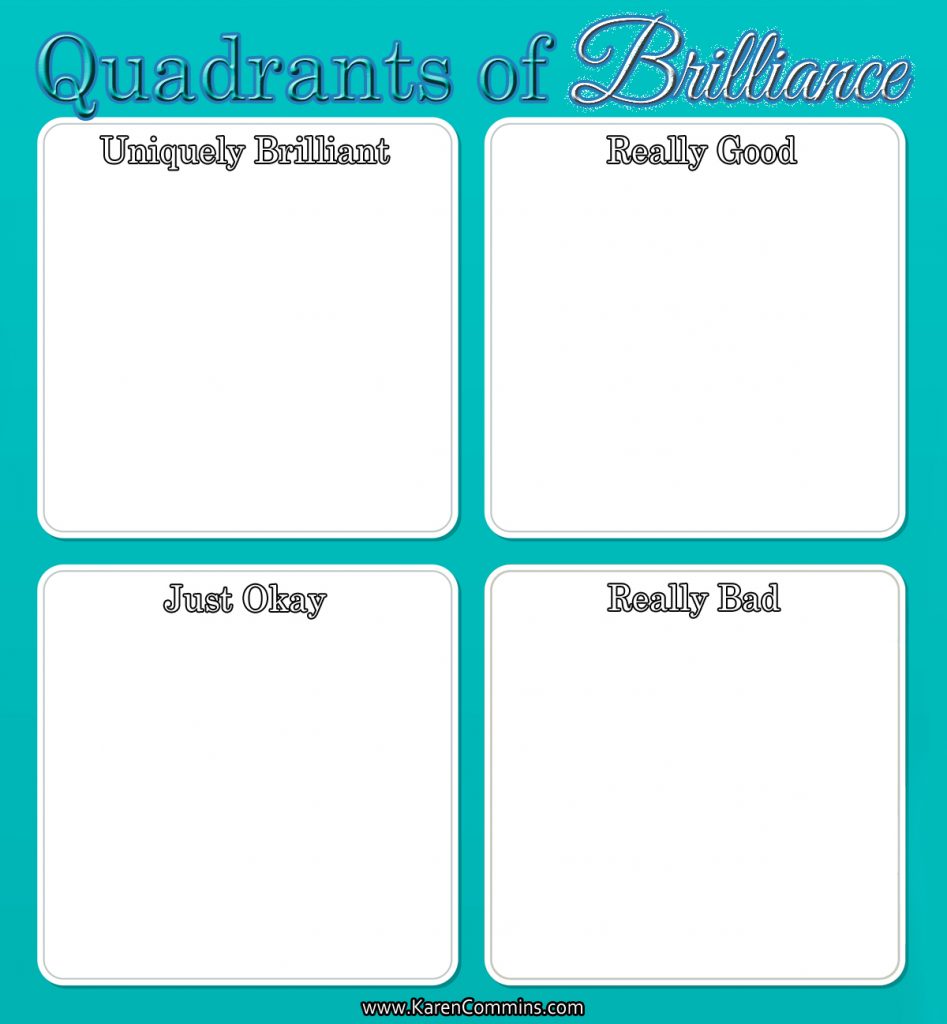An interviewer once asked me what I learned while working in information technology that helped me in my profession as an audiobook narrator. A 25-year career in a variety of IT positions including programmer, network and email administrator, and technical specialist certainly gave me an ease and confidence about utilizing a wide variety of software on my computer. I want to share 3 things that will help make you a computer super user.

1. Learn as much as you can about each software package that you use, especially its shortcut keys.
This tip is not only the #1 tip on this list, but it’s my #1 tip about how to improve your work flow.
Moving your mouse to select menu options takes longer than pressing a couple of keys to accomplish the same thing. Those extra few seconds may not seem like much on a single action, but they really add up over time. I saw one study that said office workers could save 8 days in the course of the year by learning shortcuts.
Software operations are transferrable skills. If you will spend a little time to learn the shortcut keys to copy and paste in one application, you’ll use the same keystrokes in all of them. Also, if you decide to move from a PC to a Mac or vice versa, the same basic keystrokes will perform the same functions.
Below are 10 common keyboard shortcuts dealing with text that work across applications. I use them all of the time! First, you highlight the text on which to perform the operation, then press the shortcut keys.
On a PC, you press the CTRL key in combination with another; on a Mac, you press the CMD key. Since I use a Mac, I’ll list the keyboard shortcuts for it.
- Copy CMD-C
- Paste CMD-V
- Cut CMD-X
- Bold CMD-B
- Italic CMD-I
- Underline CMD-U
- Undo CMD-Z
- Add hyperlink CMD-K
- Select all CMD-A (no initial highlighting needed)
- Find CMD-F
In addition to common tasks, each software program has shortcut keys for functions specific to it. For instance, when I was editing my audiobooks in Pro Tools, I decided to learn a few specific shortcut combos in it. Once I incorporated these 6 time-saving alternates, I felt my productivity improved by a quantum leap rather than a baby step.
- Insert Silence Shift-CMD-E
- Paste Special/Repeat to Fill Selection Option-CMD-V (I use these first 2 shortcuts back-to-back to insert room tone in my recording.)
- Batch Fades CMD-F (often used after pressing CMD-A to select all clips rather than simply fading between 2 clips at a time)
- Consolidate Clips Option-Shift-3 (again after pressing CMD-A to select all clips)
- Export Clip as File Shift-CMD-K
- Memory Locations Window CMD-5 on number pad
Don’t feel like you have to learn all the shortcuts available in your software! To start, pick 3-5 of the things you frequently do in a single program. As you mouse through the menus to find your selection, notice if the option lists some keystrokes on the line. Write down those keys and use them the next time you need to do the same task.
Of course, an even speedier method of finding the shortcut keys for any program is to search for them online. Even Google’s Gmail has keyboard shortcuts.
With a little practice, the shortcut keys will be absorbed into your kinesthetic memory. You’ll do them without even thinking and get faster every day!
2. Choose your operating system and software upgrade dates very carefully.
Don’t upgrade your operating system the moment Apple or Microsoft releases a new update. Also, don’t upgrade in the middle of a book if you can avoid it. The cutting edge of technology is often the bleeding edge of technology!
New operating systems often cause existing programs to fail because other developers may not have modified their application. If you’re using Pro Tools, you’ll want to check the Pro Tools Operating System Compatibility Chart before you make any updates.
If your system is stable and satisfactorily performing all of your tasks, assess whether you truly need an update. I’m still running Mac OS 10.10.5, also known as Yosemite. Apple has released 3 new systems since the time of my last OS update.
I initially didn’t upgrade because Pro Tools, which is my most important software, wouldn’t run on the new operating system. I am also still running Pro Tools version 11.3.1, which is not the latest for that program. However, I didn’t see any features in the latest version that I had to have, so I haven’t spent the money to upgrade.
If I upgrade my OS now, I’ll also probably have to upgrade Pro Tools. According to the chart linked above, my version of Pro Tools isn’t guaranteed to run on a newer OS.
People worry that Apple or Microsoft won’t support their OS if they fail to keep up with upgrades. At some point, that statement becomes true. I’m simply saying that you need to be in control of the decision to upgrade your system, not the manufacturer. You should be okay as long as you have a safe copy on DVD or USB drive of the installation software in the event you need to re-install the OS after a system failure.
3. Keep calm, and compute on.
Errors sometimes occur on even the most stable system. When troubleshooting, always retrace your steps to the last time the system was operating correctly. What changed in the meantime?
Use your favorite search engine and enter the exact error message of any software to learn how to troubleshoot it. You most probably aren’t the first person to experience an error. In fact, your search results usually will include numerous sites. Sometimes you’ll have to extrapolate from others’ situations in order to solve your problem.
Once I find solutions to any computer problem, I save them in an Evernote notebook. That way, if the issue re-occurs, I’m not reinventing the wheel to find the answer.
We had this saying in IT: “the only day you need to do a backup is the day before your system crashes.” You never know when a system will malfunction, but Murphy’s Law increases the probability that it will happen when you can least afford the time — and possibly money — to deal with it.
In addition to doing regular backups on another drive, I highly recommend that you include some measure of off-site storage in your data safety and recovery plan. I learned the hard way that having only one copy of critical data is asking for trouble. In the early 2000s, I was editing one of my first audiobooks when the drive crashed. I had to pay to get the data recovered.
Now, at the end of each day’s recording session, I copy my book files to Dropbox. If my computer fails or, worse, something happens to my house, my audiobook files are safely stored in the cloud.
In case you don’t know, I love my computer and computing devices! By following these 3 tips, I hope you will feel more empowered when you are in front of your computer.





